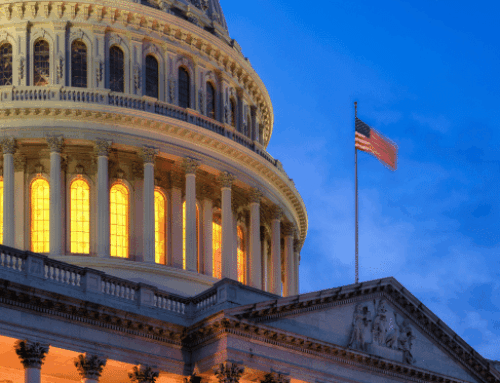Now that Uncle Sam has mailed Americans a majority of the checks intended to help jump start the economy, the question is, are you stimulated?
Passed overwhelmingly by Congress and signed into law by the president last February, the Economic Stimulus Act of 2008 (H.R. 5140) provided some business tax incentives and a one-time tax rebate for nearly all taxpayers. The rebate checks, as much as $600 for an individual or $1,200 for a couple, with an additional $300 per child, were intended to spur a booster shot of consumer spending to help keep the country from sliding into a recession.
The problem is—it doesn't seem to be working.
One of the earliest signs of the stimulus’ impact was a May Commerce Department report showing a 1 percent gain in retail sales – double that of analyst expectations. But it appears that was a one-time blip of optimism. Earlier this week, the New York-based Conference Board released its latest Consumer Confidence Index, a measure of the public's opinion on multiple economic measures. The results showed another decline in public confidence in June, on top of the decline in May. Putting lipstick on the news, an official at the Conference Board is quoted as saying, “Perhaps the silver lining to this otherwise dismal report is that Consumer Confidence may be nearing a bottom.”
It is important to remember that there's no such thing as a free lunch. Late last week the Government Accountability Office (GAO) testified that at the end of the day the distribution of the stimulus checks would cost about $1 billion. This is largely due to the shifting of some Internal Revenue Service (IRS) employees from their regular collections department jobs to economic stimulus work. Additionally, the Congressional Budget Office estimates that the rebate checks will increase the federal deficit by just under $152 billion in fiscal year 2009. To top it all off, apparently the federal treasury is also intercepting about $2 billion worth of stimulus payments that were going to people who have been remiss in paying their student loans, back taxes, or child support. So this could mean that the government is actually losing money by increasing the deficit to pay itself back?
As we said back in January, if Congress is going to try to stimulate the economy, they need to be more judicious about doing what could actually work while not making our country's fiscal situation worse. The recent emergency spending bill that the House just sent over to the Senate includes a temporary extension of unemployment insurance benefits, a measure the Congressional Budget Office estimates would have one of the largest and most immediate benefits to the economy.
On the other side of the ledger we're all facing $4 a gallon gasoline, escalating food costs, and the depressing effects of the failing housing market. Sending rebate checks may make great fodder for press releases, especially in an election year. But anecdotal evidence indicates that much of the stimulus money is helping people pay down personal debt, fill their gas tanks, and knock down the grocery tab a bit. This is not the type of spending that stimulates anything.
Congress can do more good by dealing with the energy and mortgage crises. That would be much more stimulating than simply more election-year gimmicks.








